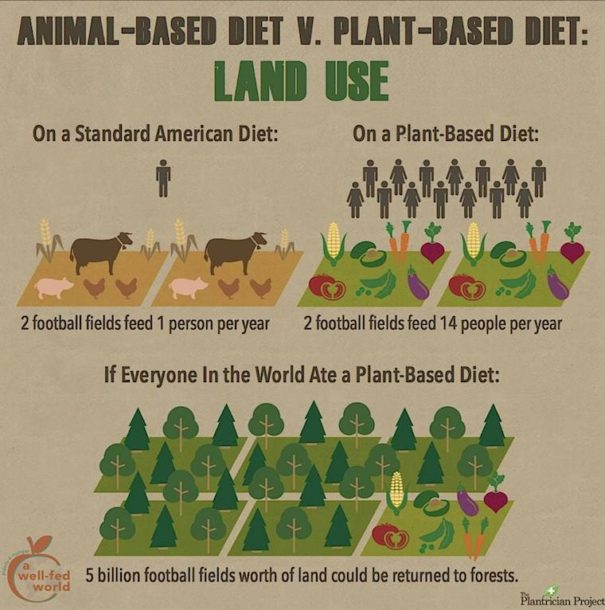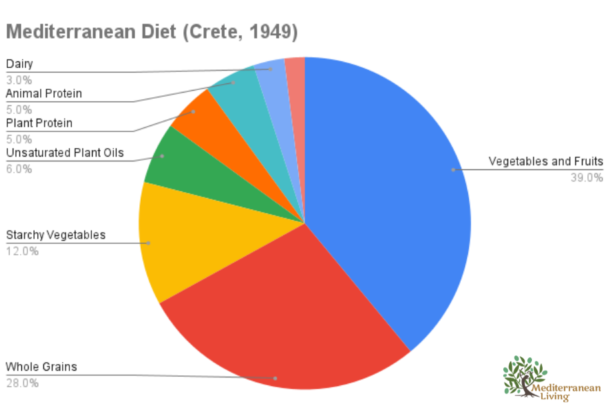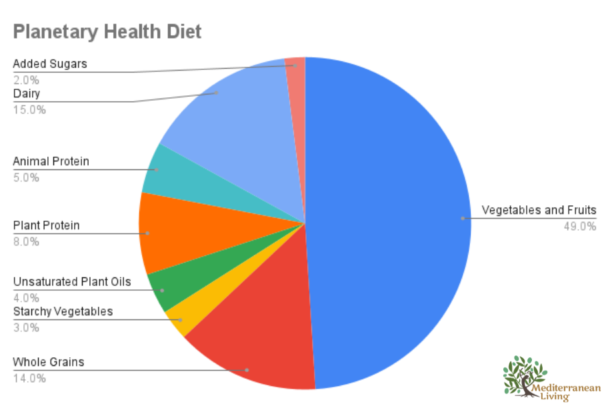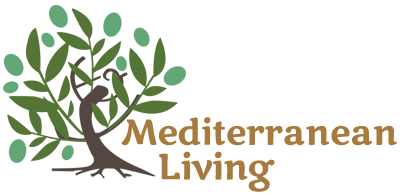Healing the Planet with a Plant Based Diet
By Winter LeBlanc
Updated November 5, 2021
The future needs sustainable food systems and plant based diets are what scientists are telling us to eat in order to combat climate change. A plant based diet doesn’t have to be a vegetarian or vegan diet. Any diet that puts the primary focus on eating plants (while still allowing for some meat) is a plant based diet. The Mediterranean Diet is a plant based diet. So the question is… could eating a diet that’s been around for thousands of years be a sustainable diet for the future of our planet?
In 2020, Sir David Attenborough, the legendary broadcaster and natural historian, released and starred in “A Life On Our Planet”, a documentary meant to illuminate the catastrophic impacts of the warming planet and offer hope about how we might avoid it. In the documentary, he shares that one of the best ways individuals can help fight climate change is by eating a plant based diet. Currently, almost half of the surface area of Earth is devoted to agriculture.
Attenborough says, “if we all had largely a plant based diet we would need only half the land we use at the moment and because we would then be dedicated to growing plants we could then increase the yield of this land substantially.”

Photo courtesy of a well-fed world – https://awellfedworld.org/
The intersection between diet and planetary health goes way beyond just land use, however. Professor Johan Rockström of Potsdam Institute and Stockholm Resilience Centre and Professor Walter Willet of Harvard University have found that food is the single largest contributor to escalating environmental pressures. In their 2019 paper, “Food in the Anthropocene: the EAT-Lancet Commission on healthy diets from sustainable food systems”, Rockström and Willet show that the impacts of the current food system are as follows:
- Greenhouse Gas Emissions
- Loss of Biodiversity
- Overconsumption of Water
- Overuse of Land and Destruction of Natural Ecosystems
- Interference of the Nitrogen Cycle
After identifying the ways in which our current food system harms the planet, Rockström and Willet came up with a goal to achieve environmentally-friendly plant based diets for nearly 10 billion people by 2050. In their paper, they developed a diet called the Planetary Health Diet. Based on diets associated with the lowest rates of heart disease, the Planetary Health Diet is similar to another, more established diet – the traditional Mediterranean Diet. Both are plant-based and neither are “deprivation diets” meaning they have good flavors, are enjoyable and have lots of variety. But how similar are they?
The traditional Mediterranean Diet is based on the diets of people living on the Greek island of Crete in the 1950s when Cretans had some of the lowest rates of heart disease ever recorded. In 1949, dietary data was collected on a group of Cretans by the Rockefeller Foundation that included a record of everything they ate over a period of a week. The top 10 foods they consumed were as follows:
- Bread
- Grapes
- Potatoes
- Tomatoes
- Beans
- Olive Oil
- Dairy
- Onions
- Wine
- Fish
Based on the data recorded in the study, Cretans were eating 40% fruits and vegetables, 28% whole grains, 12% starchy vegetables, 6% unsaturated plant oils, 5% plant protein, 5% animal protein, 3% dairy, and 2% added sugars.

Food breakdown for the Mediterranean Diet based on data collected during the Nutrition Survey, carried out in Crete by the Rockefeller Foundation, “Crete Mission”. Tabulations of food consumption over 1 week in Dramia. Dramia is an area in Crete between the city of Chania and Rethymno.
How does this compare to the Planetary Health Diet?
Well, the Planetary Health Diet calls for eating 50% fruits and vegetables, 14% whole grains, 3% starchy vegetables, 4% unsaturated plant oils, 8% plant protein, 5% animal protein, 15% dairy and 2% added sugars.
 Food breakdown for the Planetary Health Diet using data from “Food in the Anthropocene: the EAT-Lancet Commission on healthy diets from sustainable food systems” by Johan Rockström and Walter Willet (click here for the article)
Food breakdown for the Planetary Health Diet using data from “Food in the Anthropocene: the EAT-Lancet Commission on healthy diets from sustainable food systems” by Johan Rockström and Walter Willet (click here for the article)
Overall, the Planetary Health Diet and Mediterranean Diet are similar especially in regards to the large amounts of fruits and vegetables and types of protein. Willet stated in an interview about the Planetary Health Diet that he added “extra detail around protein sources, which have the biggest impact on the planet”. He went on to say that “the amount of red meat seemed like little in American standards but it was equal to the amount of meat people were eating in the Mediterranean during the Crete study”. In many ways, the Planetary Health Diet is just a modified Mediterranean Diet.
As is so often the case, the answers we require for the future can be found by looking backwards. What I find hopeful and inspiring about this intersection between diet and sustainability is that it seems like in order to heal the planet we must simultaneously be healing ourselves with food. We are now living in an age where humanity is the driving force of environmental change on the planet. And so, although our individual choices seem insignificant, our choices are now more impactful than ever. Eating a healthy plant based diet has never been more important and the Mediterranean Diet is a great place to begin.
Want to get started with some plant based recipes?
Click Here for 21 Mediterranean Plant Based Recipes for Beginners











Winter LeBlanc says:
Winter LeBlanc says:
Winter LeBlanc says: